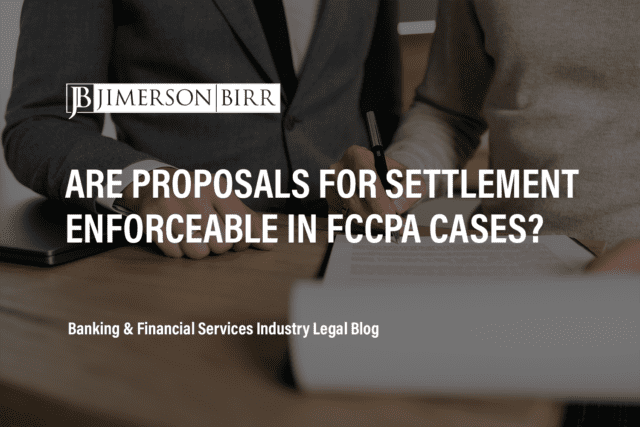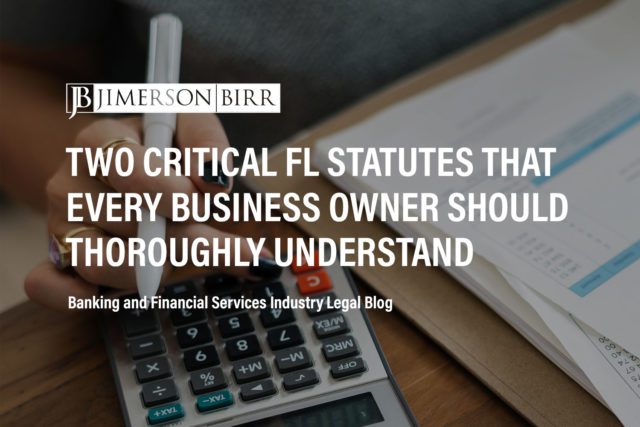What does FDCPA class action defense litigation entail?
FDCPA class action defense is a legal strategy in which attorneys defend debt collectors from multiple plaintiffs claiming a violation of their rights under the Act. In Florida, FDCPA defense litigation often involves intricate knowledge of state and federal statutes and case law to effectively counter claims made by aggrieved consumers.
One example of FDCPA class action defense in Florida involves challenging the certification of a class. A defendant may argue that plaintiffs do not meet the criteria for class certification, such as numerosity, commonality, typicality, and adequacy of representation. Successfully contesting class certification can lead to the dismissal of the class action or individual litigation, substantially reducing the defendant’s potential liability.
Another example arises when a defendant disputes the sufficiency of the alleged FDCPA violations. Under the FDCPA, a debt collector may be liable for various conduct, including harassment, false representations, and unfair practices. In a class action defense, attorneys may argue that the plaintiffs’ allegations do not meet the statutory requirements or that the defendant is exempt from liability under specific provisions of the FDCPA.
Need help regarding FDCPA defense litigation? Schedule your consultation today with a top FCRA defense litigation attorney.
Which laws and regulations apply to FDCPA class action defense litigation in Florida?
In Florida, state and federal laws and regulations apply to FDCPA class action defense litigation. At the federal level, the primary statute is the Fair Debt Collection Practices Act (15 USC § 1692 et seq.), which regulates debt collection practices and provides remedies for consumers subjected to unfair, deceptive, or abusive collection tactics. In addition, the Federal Trade Commission (FTC) enforces the FDCPA and issues regulations to implement and clarify its provisions, such as 12 CFR § 1006, which governs debt collection practices.
Florida, on the other hand, uses the FCCPA to protect consumers further. The FCCPA expands upon the protections offered by the FDCPA, covering both original creditors and third-party debt collectors. In addition, the Florida Office of Financial Regulation enforces the FCCPA and oversees compliance with its provisions.
What are common issues regarding the FDCPA that lead to class action litigation?
The following issues commonly lead to FDCPA class action litigation:
- Harassing communications: Debt collectors may engage in behavior that constitutes harassment under the FDCPA, such as making repeated or continuous phone calls, using offensive language, or threatening violence.
- False representations: Plaintiffs may allege that debt collectors made false or misleading statements about the amount or legal status of a debt, or misrepresented themselves as attorneys, law enforcement, or government officials.
- Failure to provide validation notices: The FDCPA requires debt collectors to provide written validation notices within five days of their initial communication with consumers, informing them of their right to dispute the debt. Failure to provide such notices can lead to class action litigation.
- Unfair practices: Plaintiffs may claim that debt collectors engaged in unfair practices, such as adding unauthorized fees, attempting to collect on debts discharged in bankruptcy or threatening legal action they have no intention or authority to pursue.
- Third-party disclosure: The FDCPA prohibits debt collectors from discussing a consumer’s debt with unauthorized third parties, like friends, family members, or employers. Violations of this provision can result in class action lawsuits.
When a set of facts is appropriate for FDCPA defense litigation, there are many paths a claimant may take. We are value-based attorneys at Jimerson Birr, which means we look at each action with our clients from the point of view of costs and benefits while reducing liability. Then, based on our client’s objectives, we chart a path to seek appropriate remedies.
To determine whether your unique situation may necessitate litigation, please contact our office to set up your initial consultation.
What FDCPA class action claims do plaintiffs generally bring to court, and what are common legal defenses to those claims?
To file an FDCPA class action lawsuit in Florida, plaintiffs must satisfy procedural and evidentiary requirements, including demonstrating that they have a valid claim under the FDCPA, that they have suffered actual damages, and that the debt collector’s actions were willful or negligent. Additionally, the plaintiffs must meet the class certification requirements under Federal Rule of Civil Procedure 23.
Common claims that FDCPA class action plaintiffs file in Florida courts include:
- Violations of the prohibition against harassment or abuse
- Misrepresentations or false statements about the debt
- Unfair or unconscionable collection methods
- Failure to provide required notices or disclosures
- Unauthorized third-party communication
Common legal defenses that FDCPA class action defendants raise against these complaints include:
- Bona fide error defense: Debt collectors may argue that any violation of the FDCPA was unintentional and resulted from a bona fide error despite the implementation of procedures designed to avoid such errors.
- Statute of limitations: Defendants can assert that the plaintiff’s claim is time-barred because the FDCPA requires that actions be brought within one year from the violation date.
- Lack of standing: Debt collectors may argue that the plaintiff lacks standing to bring a claim because they have not suffered an injury-in-fact, or the alleged harm is not traceable to the debt collector’s actions.
- Challenges to class certification: Defendants may contest the certification of a class by arguing that the plaintiffs do not meet the criteria under Federal Rule of Civil Procedure 23, such as numerosity, commonality, typicality, and adequacy of representation.
Please contact our office to set up your initial consultation to see what actions or defenses may be available for your unique situation.
What are effective measures to minimize the risk of class action litigation?
- Implement robust compliance procedures: Develop comprehensive policies and procedures to ensure compliance with the FDCPA and other applicable state and federal laws. Regularly update these procedures as the legal landscape evolves.
- Train employees: Provide regular training on FDCPA requirements and best practices, emphasizing the importance of professional and respectful communication with consumers.
- Document and maintain records: Keep detailed and accurate records of all communications with consumers, as well as any disputes, resolutions, or settlements, to provide evidence of compliance in the event of litigation.
- Conduct internal audits: Periodically audit internal practices to identify and rectify potential FDCPA compliance issues before they escalate into legal disputes.
- Seek legal counsel: Consult with experienced legal counsel to review and assess your company’s compliance with the FDCPA and other applicable laws and develop a proactive litigation strategy in case of potential lawsuits.
Frequently Asked Questions
- Can a debt collector contact a consumer’s employer under the FDCPA?
Under the FDCPA, debt collectors are generally prohibited from contacting a consumer’s employer without the consumer’s prior consent. However, limited exceptions exist, such as obtaining the consumer’s employment location or garnishing wages after getting a court order.
- What damages can a consumer recover in an FDCPA class action lawsuit?
In an FDCPA class action lawsuit, courts may award consumers actual damages, statutory damages (up to $1,000 per plaintiff), and attorney’s fees and costs. Additionally, in a class action, the court may award additional damages for the class, not to exceed the lesser of $500,000 or 1% of the debt collector’s net worth.
- What are the notice requirements for debt collectors under the FDCPA?
Debt collectors must send a written validation notice to the consumer within five days of their initial communication. This notice must include the debt amount, the creditor’s name, a statement informing the consumer of their right to dispute the debt within 30 days, and a statement that if the consumer disputes the debt, the debt collector will verify the debt.
Have more questions about an FDCPA defense-related situation?
Crucially, this overview of the FDCPA class action defense does not begin to cover all the laws implicated by this issue or the factors that may compel the application of such laws. Every case is unique, and the laws can produce different outcomes depending on the individual circumstances.
Jimerson Birr attorneys guide our clients to help make informed decisions while ensuring their rights are respected and protected. Our lawyers are highly trained and experienced in the nuances of the law, so they can accurately interpret statutes and case law and holistically prepare individuals or companies for their legal endeavors. Through this intense personal investment and advocacy, our lawyers will help resolve the issue’s complicated legal problems efficiently and effectively.
Having a Jimerson Birr attorney on your side means securing a team of seasoned, multi-dimensional, cross-functional legal professionals. Whether it is a transaction, an operational issue, a regulatory challenge, or a contested legal predicament that may require court intervention, we remain tireless advocates at every step. Being a value-added law firm means putting the client at the forefront of everything we do. We use our experience to help our clients navigate even the most complex problems and come out the other side triumphant.
If you want to understand your case, the merits of your claim or defense, potential monetary awards, or the amount of exposure you face, you should speak with a qualified Jimerson Birr lawyer. Our experienced team of attorneys is here to help. Call Jimerson Birr at (904) 389-0050 or use the contact form to schedule a consultation.

We live by our 7 Superior Service Commitments
- Conferring Client-Defined Value
- Efficient and Cost-Effective
- Accessibility
- Delivering an Experience While Delivering Results
- Meaningful and Enduring Partnership
- Exceptional Communication Based Upon Listening
- Accountability to Goals










